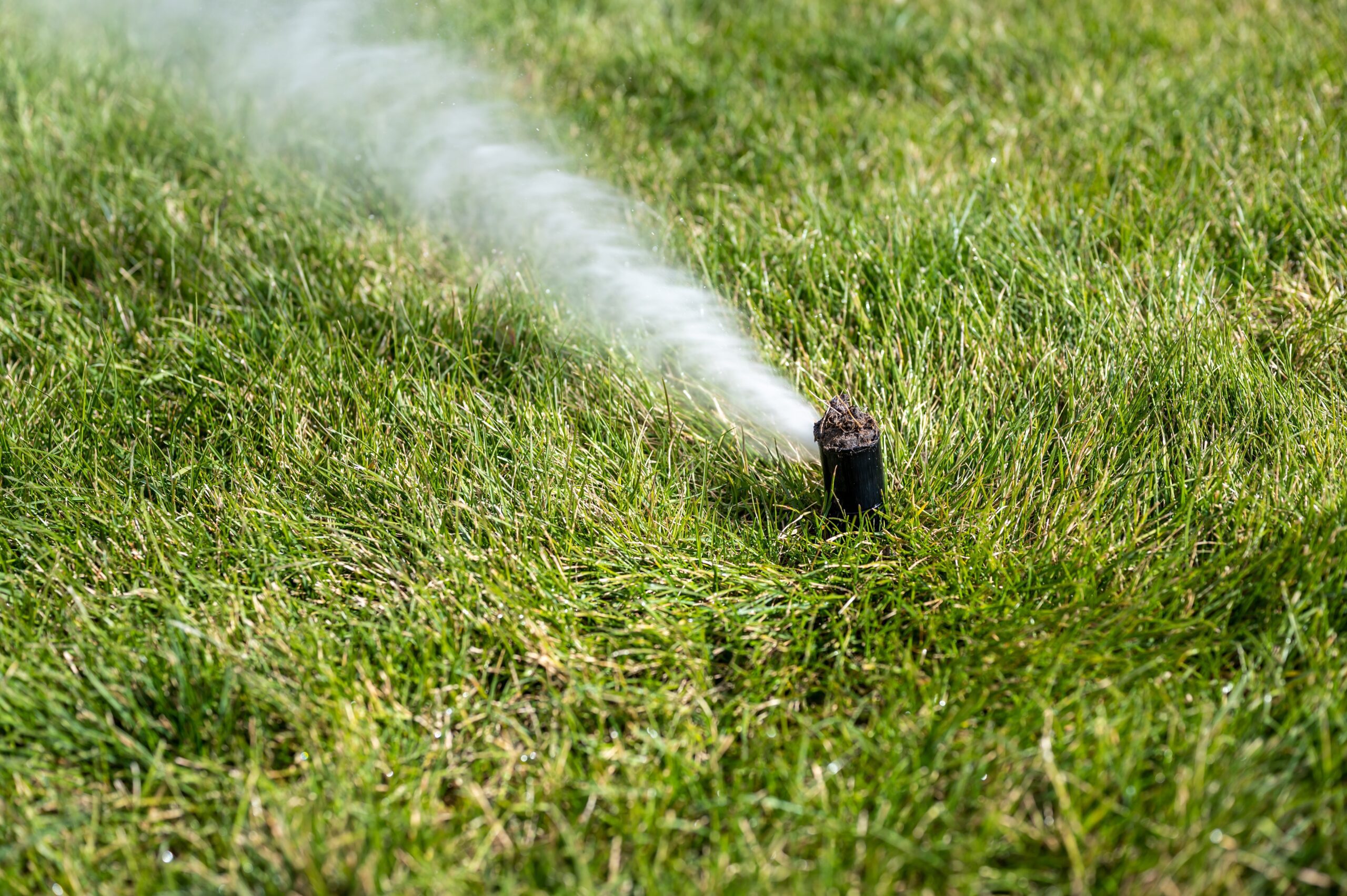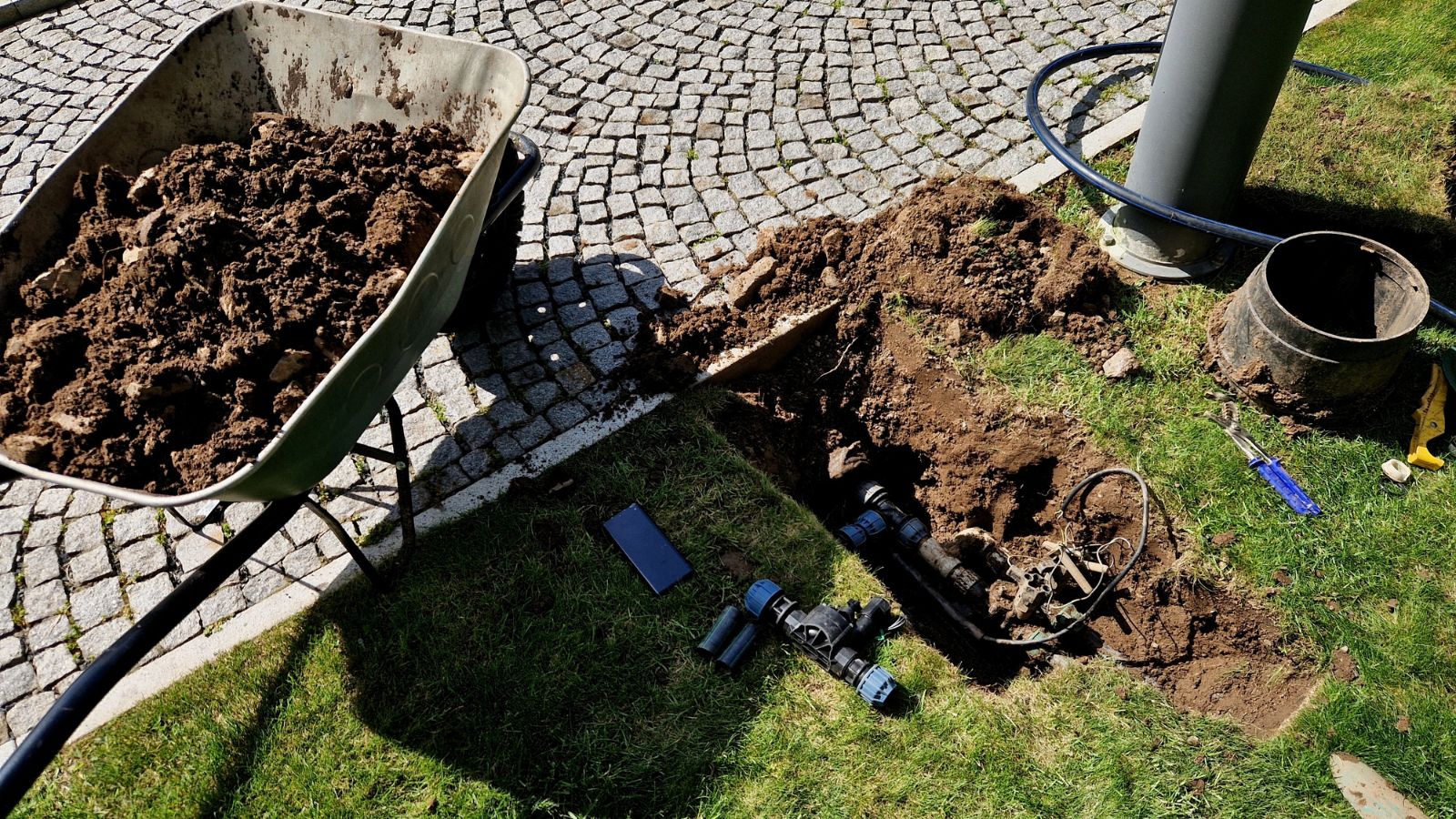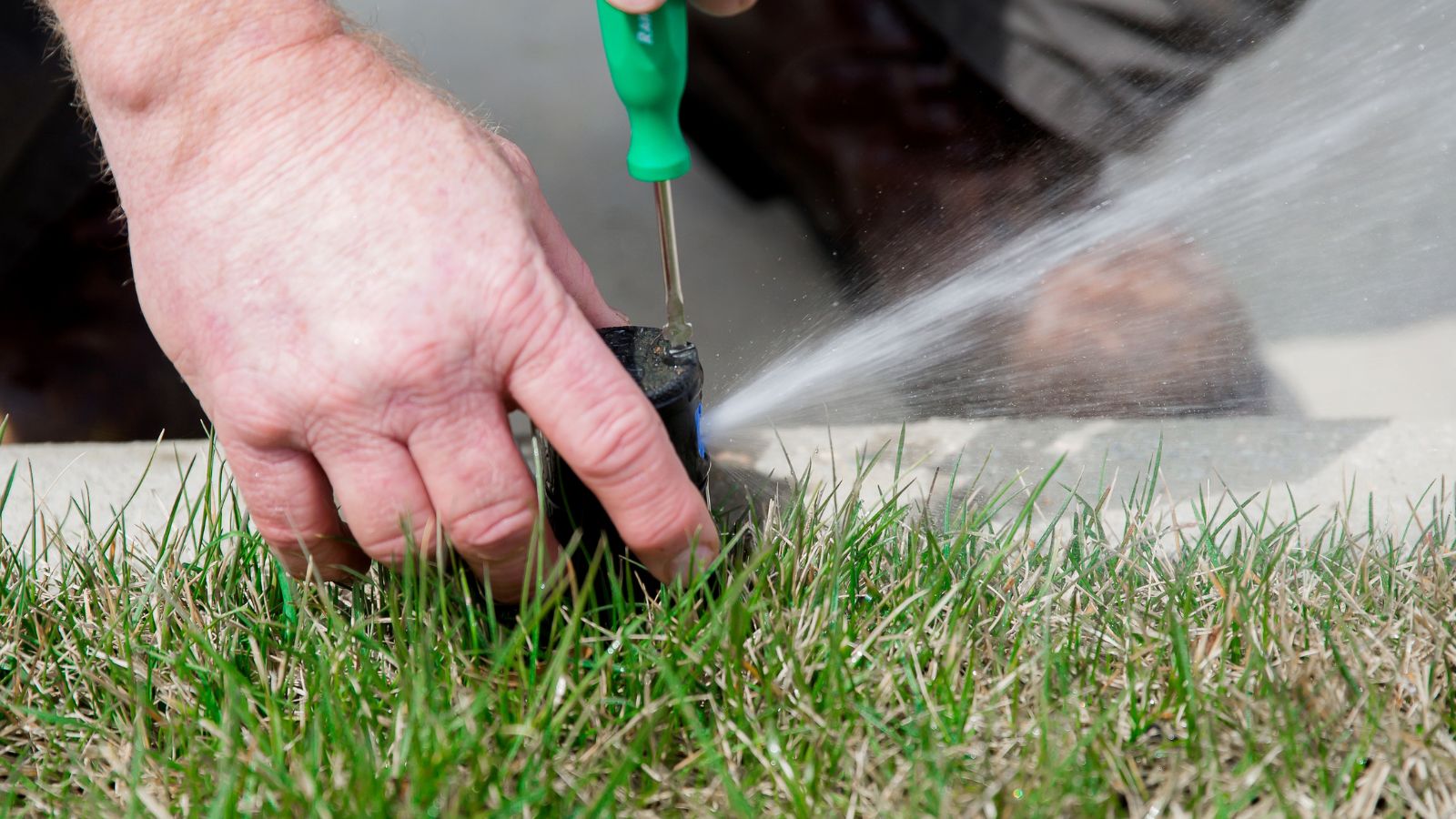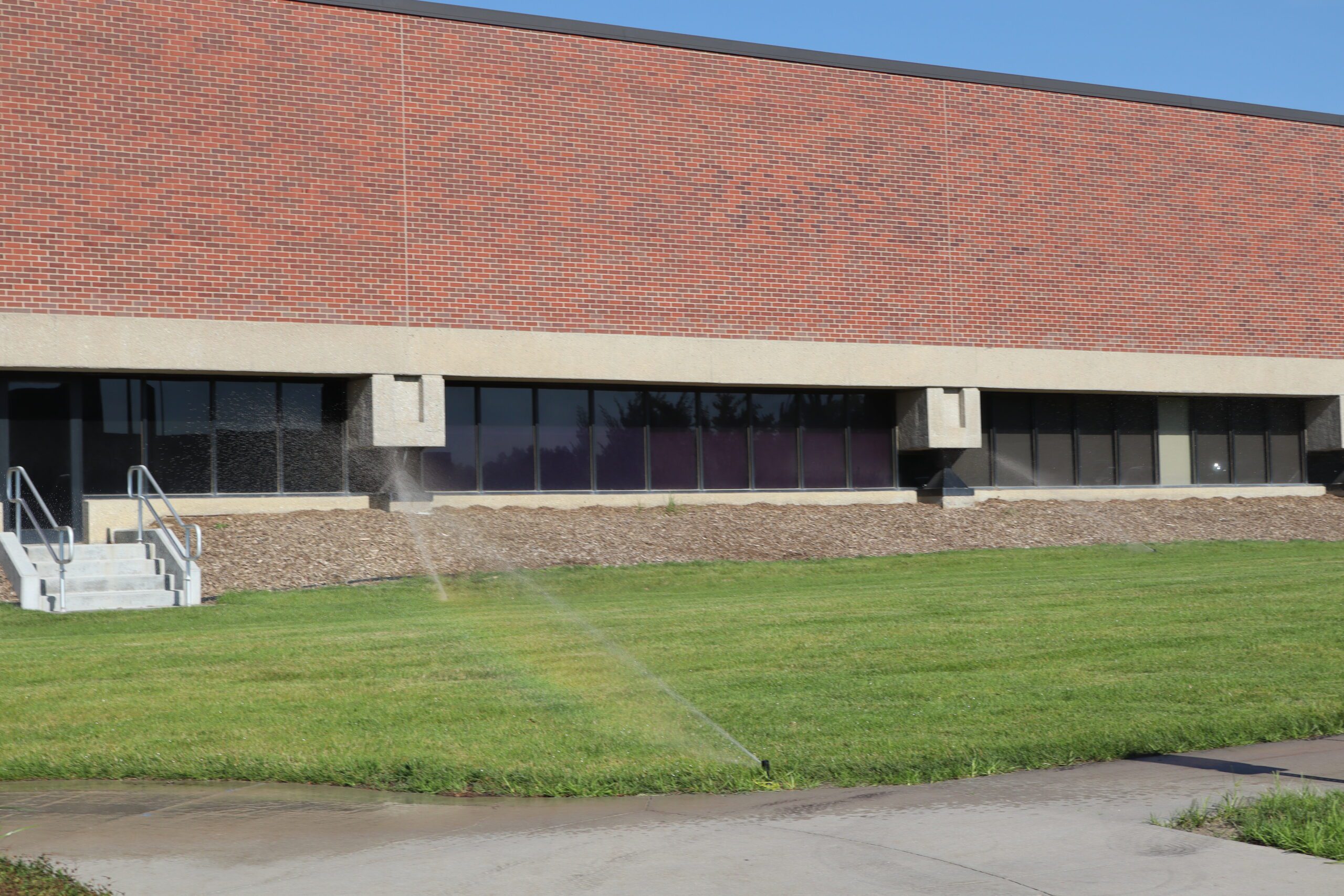In Nebraska, the best time to shut off your sprinkler system in October usually lands when daytime temperatures stick below 50°F and before that first hard freeze sneaks up. Turning off your sprinkler system too early might leave your lawn thirsty, but waiting too long? That’s asking for frozen pipes. Most years, mid to late October seems to work for most homeowners. Still, Nebraska weather loves to keep us guessing, so it’s smart to check forecasts and poke around at your soil before deciding. Shutting down the irrigation system at the right moment protects those irrigation components from freezing up and saves water, too. If winterizing gets skipped or done late, you could face repairs in spring and a lawn that’s worse for wear.
When Is the Best Time in October to Shut Off Your Sprinkler System in Nebraska?
Optimal Timing to Shut Off Your Sprinkler System in Nebraska
Getting the timing right in October really helps your sprinkler system and lawn survive the cold. With Nebraska’s chilly nights and unpredictable rain, figuring out the best time to shut off regular watering can be a bit of a puzzle.
Recommended Period in October
The best time to shut off sprinkler systems here tends to fall between the second and third week of October. By then, daytime highs drop under 60°F and nights flirt with freezing temperatures. Plan to stop watering your lawn before the first hard freeze. That way, you dodge burst pipes and keep your irrigation system safe. Plus, grass is going dormant and barely needs water, so keeping the sprinklers on longer just wastes water and might even harm your yard.
Impact of Nebraska’s Climate on Timing
Nebraska’s climate in the fall? All over the place. Warm afternoons can suddenly turn into cold snaps. So, you really have to keep an eye on local weather and adjust as things change. Sometimes, a dry spell tempts folks to keep watering. But honestly, once the temperatures begin to drop and grass growth slows, heavy watering isn’t needed and can even cause fungus issues. Nebraska can get snow or frost any time in late October, so pushing your irrigation system too long can backfire fast. It’s worth checking soil moisture and air temperatures every day in October. That’s the best time to shut off the sprinkler system and avoid surprises.
Early Signs That Signal Shutdown
There are a few telltale signs it’s time to shut down the sprinkler system. If your grass stops growing and looks darker green or brown, that’s a hint it doesn’t want much more water. Nighttime temperatures hovering near freezing for several nights in a row? Time to wrap things up. If you see frost on the lawn in the morning, that’s a big red flag. After a good rain, if the soil stays damp for days, you can probably skip more irrigation. Honestly, just checking your lawn and soil every few days can save you a headache later.
Weather Patterns and Frost Risks in October
October brings all kinds of temperature swings and a real risk of frost. Knowing the usual frost dates and watching the weather can help you decide when to shut down your sprinkler system before the winter season really hits.
Typical First Frost Dates Across Nebraska
For most of Nebraska, the first frost shows up around October 14th, give or take. That’s when overnight temperatures dip low enough to leave ice on your car and grass. You’ll want to winterize your irrigation system about a week before that to avoid frozen pipes or sprinkler heads. Frost usually hits when temperatures reach 32°F or lower. Northern Nebraska can see frost earlier, while southern areas might get lucky with a few extra days. If you leave water in the system during a freeze, it can burst pipes and ruin irrigation components.
Regional Variations in Temperature
Nebraska’s sprawling landscape means the weather can change quickly, which is why knowing the best time to shut off the sprinkler system is essential for homeowners across the state. The north gets colder sooner and sees earlier freezes, while the south and central parts might hold onto warmth a bit longer. Example temperature ranges:
| Region | Early Oct Avg. Low | Mid-Oct Avg. Low | Late Oct Avg. Low |
|---|---|---|---|
| Northern | 40°F | 30-35°F | 25-30°F |
| Central | 45°F | 35-40°F | 30-35°F |
| Southern | 50°F | 40-45°F | 35-40°F |
So, if the location is in northern Nebraska, plan to shut off the sprinkler system a bit earlier than those in the southern part of the state.
Monitoring Local Weather Forecasts
Furthermore, keeping an eye on the forecast will help you pinpoint the best time to shut off the sprinkler system and avoid freeze damage. October weather can change quickly; some days feel mild while others bring a sudden freeze warning. If you see a hard freeze (below 28°F) in the forecast, don’t wait. Get your system winterized. Daily lows and frost advisories are worth tracking. Local news and weather apps can be lifesavers here. Soil cools off slower than air, but if the ground itself gets close to freezing, it’s definitely time to act. No sense risking all those irrigation components just for a few more days of watering.
Preparation and Winterization Steps
To prevent damage from freezing temperatures, drain and insulate your sprinkler system before winter. Shutting down early keeps water from freezing inside pipes, which can mean expensive repairs or leaks later. Some homeowners prefer to handle winterizing themselves, while others prefer to bring in a professional. It all depends on how confident you feel about the job.
Proper Techniques to Drain Sprinkler Systems
The main goal is to get all the excess water out of your pipes and sprinkler heads. To clear out your sprinkler system, pick from three time-tested methods: manual draining, gravity draining, or giving it a blow-out with an air compressor.
- Manual draining: Open the drain valves and let the water run out. Simple, but not always thorough.
- Gravity draining: Shut off the water, then open valves so everything drains downward. This method is simple, but you need the right setup for it to work.
- Blow-out: Use an air compressor to push water out at high pressure. Keep it under 80 psi so you don’t wreck the pipes.
Blow-outs do the best job, but be careful not to overdo the pressure. Don’t forget to insulate valves and backflow preventers. Those are the first to freeze up when cold weather hits.
Consequences of Late Shutdown
If you wait until after the first freeze to shut down, any water left in the irrigation system can expand and crack pipes. That’s a repair bill nobody wants in spring. Even a small amount of trapped water can burst pipes, valves, or sprinkler heads. Frozen damage can also mess with your water pressure or cause leaks that do not appear until you start watering your lawn again. In Nebraska, the best time to shut off your sprinkler system and finish winterizing is usually between mid-September and early October, before nights get seriously cold. You’ll save money, water, and a whole lot of hassle when the winter season finally settles in.
Professional vs DIY Winterization
When you hire a professional, they’ll drain your sprinkler system the right way, especially if they use an air compressor. These folks know how much pressure to use and how to avoid damaging pipes or messing with electrical stuff. Doing it yourself can save you some cash, but you need the right tools and a good handle on your irrigation system. If you miss a step, such as not draining all the water or forgetting to insulate something, you’re just asking for freezing temperatures to cause trouble.
If you are comfortable with hands-on projects and can follow instructions, you can winterize your own sprinkler system and irrigation components. However, if you have any doubts or if temperatures in Nebraska start to fall quickly, calling a professional sprinkler company is often the safest and most reliable choice for knowing the best time to shut off the sprinkler system before winter hits.
Pioneer Underground Lawn Sprinklers | Sprinkler System Repairs and Maintenance Omaha, NE
Contact Pioneer Underground Lawn Sprinklers to schedule a free estimate on a system install or to find out what you can do to make your existing system more efficient. We welcome commercial and residential clients. And remember, whether you need our services now… or later in the season, Your Healthy Lawn is Our Passion, and we are only a phone call away.






